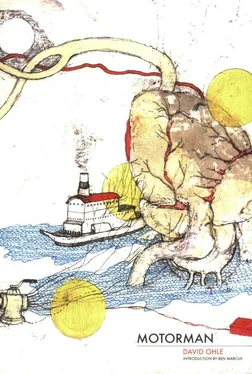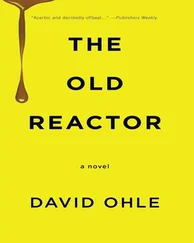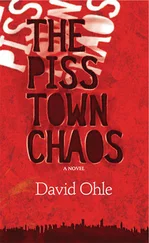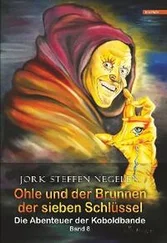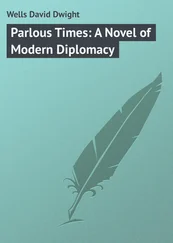1
Moldenke would remain.
As a child they kept him in a crumbling house, a building with structural moans, whose eaves cracked in summer heat and gathered winter ice.
At that point Moldenke's chest held two lungs and a single heart.
He experienced a shortened boyhood, a small degree of youth and carelessness.
Most phenomena puzzled him and sent him on aimless walks among the leafless ether trees. He would fix on his goggles, his gauze pad, and study the flying birds, see them casting frightened earthward glances.
He would press his face against the pane of his bedroom lookout as spring fell and wait for the greenbird. The greenbird would circle a dying ether, peck spirals on its dry trunk. Moldenke would fold himself into a chair and watch the greenbird work, writing down its habits, behaviors, and essences:
Rapid pecking followed by pauses. Long, agile tongue coated with a jellylike substance, good for rooting in tree trunks for larvae and etcetera. When the tongue is retracted it apparently wraps about the brain.
Things were loose in those days for Moldenke. He was free and new green, bright suns behind him, spirals ahead.
2
When his mind wandered it took him to a sunchoked acre of grasses and weed where a snow of pollen lay yellow on the ground, a place like a rotunda, obviously complete, although nothing suggested architecture. There was no apparent ceiling and no visible dome.
Warm winds would lap at his stringy hair arrangement. He would feel no pulse, faint metabolism, conscious only of the hum and flow. He would recall what Doctor Burnheart had said to him on one occasion: "Take wing, Moldenke. Life is flight if you choose to ride the updrafts."
He would circle the acre in pollen silence with his better ear open. The silence would give way to a labored breathing, the sound of a single lung in difficulty. Then, on a cue from no visible source, something with mudded claws would spit clots from surrounding bushes. Moldenke would imagine himself turning away, his chin on his chest, one hand in a pocket.
The Moldenke mind was airy, like a dirigible loosed from its tethers.
3
He felt something without form, something edgeless, rushing at him from the direction of eastern light. He pressed his nose against a lookout, saw a pattern coming together at the horizon of city and sky. He crabbed backwardly up the false stairwell and crouched in a blind spot. "Is that you, Bunce? Mr. Bunce?"
It moved through his room, the visitor, touching things to its nose and snorting, and sat in Moldenke's chair.
Moldenke turned on a light, "Yes?"
The visitor stood and approached him, opening its car valve to relieve pressure, "You should stay in the chair now, Moldenke. I will remain in the hallway and watch your door. It is a pleasure to know you."
4
The phone rang. Moldenke picked up the speaker: "Hello?"
"Yes, hello." It seemed a genuine voice. "Is this Moldenke?"
"Yes it is."
"Well, well. . Moldenke?"
"Yes, who is this?"
"Never mind that. By the way, are you leaning against a wall?"
"No."
"Would you mind?"
"No, I wouldn't."
"Then please lean."
"The phone is in the middle of the room. I can't."
"Good, try squatting."
Moldenke squatted. "There. Now, who's calling?"
"Never mind that, jocko. You know who this is."
"Mr. Bunce?"
"Exactly correct, Mr. Moldenke. Old friend Bunce. What say we halt these amenities and face the grit? I have a reason for calling you, jocko. A number of reasons in fact; one particular is a pressing little matter of tapes. You might say I called to talk tape. That would be sufficient."
"I'm not playing, Bunce."
"He's not playing, he says."
"That's right."
"I warn you not to fiddle, Moldenke. This is a business call and I'm speaking on a business phone."
Moldenke felt floor through his soft, catskin slippers, was conscious of trapped gas within his pajamas, imagined a raincoat under his skin, and an indoor rain.
"We're talking dumps, Moldenke. Don't give me gas. I have some tapes here that may be of major importance to you, all nicely packaged and locked in my kitty-box."
Moldenke hung up.
5
Dear Moldenke,
I think of you often these days. How are things in the cities? I wish you could be with me in this country air. Yes, Moldenke. Air. You should be breathing it occasionally, if not constantly. After all, you're the one with the problem heart.
My special regards, as ever,
Doctor Burnheart
6
She would say, "Play the Buxtehude, Moldenke. I enjoy the chills it gives me." She would close the door behind herself and leave him alone in the piano room with its pots of ivy and ant-traps.
He would begin the Buxtehude on the cold keyboard. In the bedroom she would listen through a wall.
He would play the Buxtehude until ants crawled along his fingers and assembled on his sleeves.
He would then walk to the kitchen, carrying his hands like packages, and scrape the ants into a teaboil.
Roberta would emerge from the bedroom, stand in the doorway in her flannel. Moldenke would turn from the teaboil and smile, his old silver tooth throwing out a rod of light.
Roberta would say, "Tea?"
Moldenke would add mock sugar. "Yes, would you like a cup?"
She would always have a cup. She would say, "As always."
Moldenke would have his with potato milk, she without.
7
When he was a boy, a student, whenever he loaned out a book it would come back with nosewipes in the margins and down the spine.
8
He put the speaker to his better ear and listened for a dial tone. There was static, someone pouring rice from bowl to bowl.
He fixed the speaker in its cradle and went to his lookout. Buildings, vehicles, something above suggesting sky.
Two suns up, a bright day.
American hearts beating in the street.
9
Over the seasons Moldenke's faith diminished. If he opened a spigot and got water, no matter how clouded or sour, he was gratified, as though he no longer expected it, although he loved water as nearly as he loved anything. That was the way with Moldenke, a brightly burning candle with a shortened wick, destined to burn low and give off gas.
10
The phone rang. Moldenke answered:
"Hello?"
"May I speak to Mr. Moldenke?"
"This is Mr. Moldenke speaking. Who's calling?"
"Bunce here, Moldenke. Serious up a minute, please. No fooling around. I don't like the way you hung up on me last call. I never like to see a hang-up. It shows me you're not as interested as you should be, not as engaged as you might be. What's the trouble? Would you like me to put my forearm up your very delicate chuff pipe and pop your spleen like a cherry, or run my thumbnail down your inner spine, assuming you have one? Is that the sort of thing you want? Bunce doesn't cater to the meek, my friend. Remember that even if you forget all else. Remember that much. Open the good ear, jocko. Listen to me. We have the tapes."
"You have the tapes," Moldenke said. "What tapes?"
"What tapes, he says."
"Yes, Bunce. What tapes?"
"Tapes, friend. Tapes! Things said about you in your absence. Yourself as others see you. The works. We have it all. The whole Moldenke. If you ever have a yen to listen to a few of the tapes, give me a call. The number is 555-333-555333-555-333. I'll be around. Give me a ring sometime. We'll have lunch, slug down a few pinebrews, and talk things over. Put all our bags on the table, if you know what I mean. Are you with me, Moldenke? Can you follow me?"
Читать дальше
